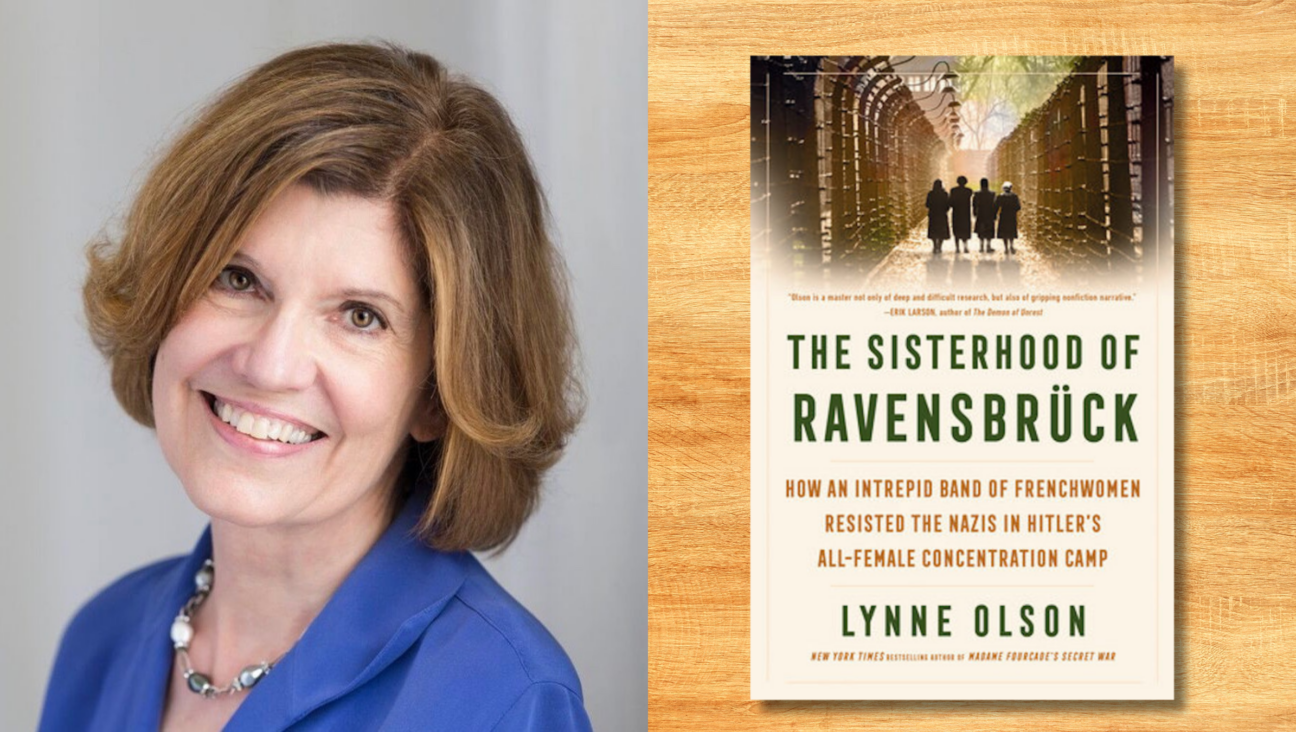Collective Guilt vs. Collective Fear

Graphic by Angelie Zaslavsky
Randy Susan Meyers’s most recent book, “The Comfort of Lies,” is now available. She is also the author of “The Murderer’s Daughters,” a finalist for the Massachusetts Book Award. Her blog posts are featured on The Arty Semite courtesy of the Jewish Book Council and My Jewish Learning’s Author Blog Series. For more information on the series, please visit:
“Justice is better than chivalry if we cannot have both.” — Alice Stone Blackwell
The Internet is a tricky beast. Sitting alone, cozy in ragged sweatpants, writing while curled on the couch, it’s easy to believe that you’re cloaked in isolation, even as you spill on that most public of forums. Thus, I hesitate before committing words online. After reading a recent well-intentioned post — about an SS officer — a piece written by a friend of a dear friend, an article meant in good will, I wrestled more than usual.
The essay focused on a particular slice of the copious research this first-generation American author did while writing a novel (which I have not read) about Germany before, during, and after WWII, from the point of view of a young German woman who falls in love with a Jewish man.
During her research, the writer (through her family ties in Germany) met with an elderly former SS officer — an officer and doctor — who the writer concludes was stationed on the front lines, not in a camp.
They met in the man’s home, where a German Mother’s Cross (a program begun by Hitler, encouraging German women to have more Aryan children, which yearly — on Hitler’s mother’s birthday — awarded women crosses centered with swastikas for fertility) hung on the wall, a menorah sat on top of a cabinet, and, in an album of wartime shots shared with the author, was a photo of the officer standing with Hitler.
The author doesn’t question these displayed and shown items: she doesn’t want to discomfort the family member who arranged the interview, upset the doctor’s wife, or continue the process of “collective guilt.” Perhaps the officer was forced into his role, the author suggests. The author herself was a victim of assumption, having been taunted by being called a Nazi because her parents were German.
Despite her sincere attempt to be fair (“who was I to judge him now?” she asks), after finishing the essay I was shaken. Badly. Before writing a comment, I spent hours pondering the wisdom of ignoring the post versus attempting conversation. I didn’t want to anger or insult the writer, or publicly ‘call her out,’ and thus hesitated to commit my feelings to public paper. Still, however well-intentioned, her words felt like slaps against my history. I couldn’t get the essay out of my mind.
Not writing didn’t seem like an option.
Check back tomorrow for the second installment in “Collective Guilt vs. Collective Fear.” Read more about Randy Susan Meyers here.
The Jewish Book Council is a not-for-profit organization devoted to the reading, writing and publishing of Jewish literature. For more Jewish literary blog posts, reviews of Jewish books and book club resources, and to learn about awards and conferences, please visit www.jewishbookcouncil.org.
MyJewishLearning.com is the leading transdenominational website of Jewish information and education. Visit My Jewish Learning for thousands of articles on Judaism, Jewish holidays, Jewish history and more.























